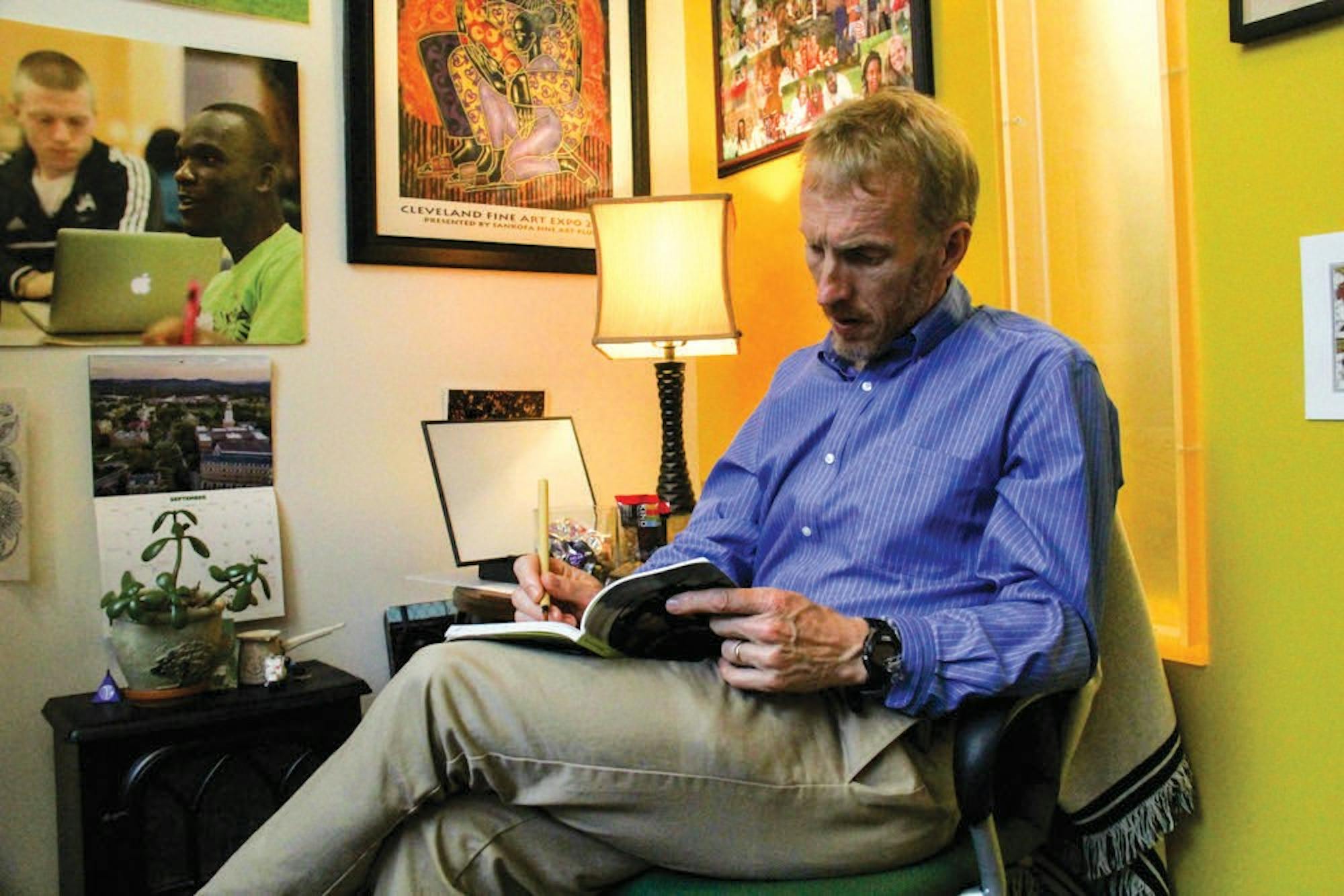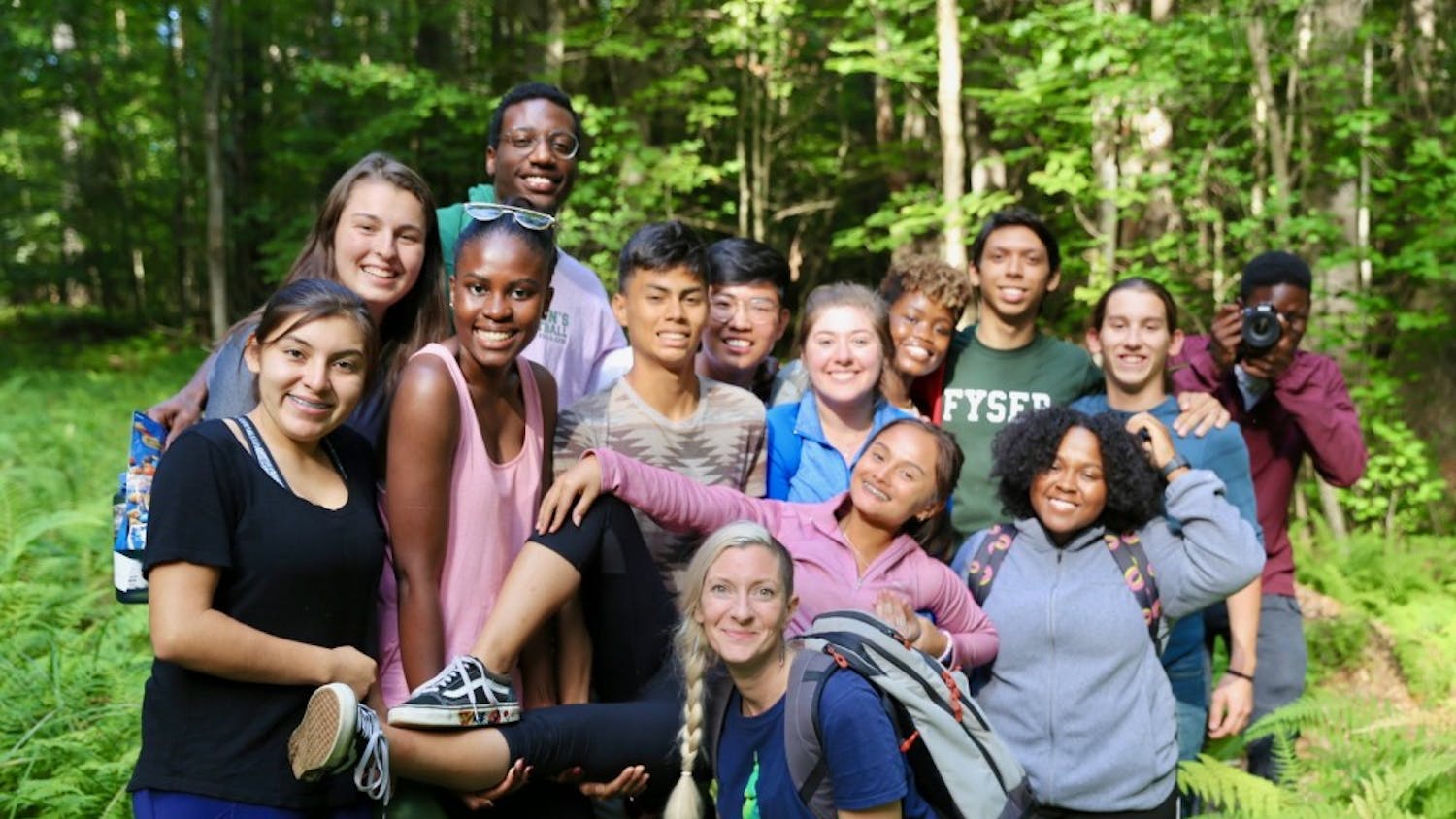For many college students, institutions like Greek life or writing centers may seem to be inherent parts of college life. Perhaps this is thanks to hearing stories shared by parents about their college days or attending well-funded preparatory schools that are able to provide similar resources. But for a significant number of students on campus — roughly 16 percent of the incoming class of 2023 alone — the initial plunge into living and studying at college can be uncharted territory. I’m referring to the sizable community of first-generation students on campus: those who are the first in their families to attend college and untangle the chaotic web of challenges, expectations and emotions woven into the academic experience.
Being the first to apply to and attend college means having to decode the complicated process with little to no prior knowledge, perhaps without realizing what institutions exist to help college students succeed. For Diana Alvarado ’22, the initial stages of applying to and enrolling in college left a lot of unanswered questions.
“I was definitely worried about, number one, finances and how I would interpret financial aid and whether or not that would fluctuate during my four years in college,” Alvarado said. “That was something that I didn’t have much experience with or help with because my parents didn’t know much about FAFSA or anything of that sort, so that was kind of all me.”
Alvarado mentioned concerns about academic preparedness compared to other students, who may have had the advantage of greater exposure to university-level teaching.
“I went to a Catholic high school, but it wasn’t super well-funded, so we didn’t have a lot of college-prep stuff,” Alvarado said. “I didn’t even know how to formally cite stuff, so that was something I was worried that I was going to be expected a lot of and not have those skills.”
Ensuring that students enter Dartmouth on even academic footing is a constant challenge, especially when considering the differing experiences of wealthy students and students from low-income families. In the case of low-income students, who make up a considerable portion of first-generation students at Dartmouth, many must assume financial responsibilities like providing extra income for their families rather than benefiting from private tutors or SAT prep.
In an effort to bridge this opportunity gap and facilitate the success of first-generation and low-income students entering Dartmouth, the College invites those who meet these criteria to apply for the First Year Student Enrichment Program. The program includes a pre-orientation introduction to Dartmouth its resources, and the academic environment pairs first-year students with juniors and seniors of similar backgrounds to provide peer mentoring and a greater network of academic and emotional support.
Jay Davis is director of the FYSEP program as well as the King Scholars program, the latter of which works with international students of similar backgrounds to FYSEP students. He said that the aim of the FYSEP program is to give the students the tools to succeed at Dartmouth.
“There’s all sorts of other wisdom and other life experiences that suit them incredibly well for this place,” Davis said. “But the understanding of how college works and what the resources are, your rights as a student and that professors are here to work with you and that your needs are actually why this place exists — that may not be immediately obvious to a student who just sees the professors as gods and the buildings as the ivory tower.”
Davis pointed to the program’s ability to inspire a level of confidence in first-generation students that allows them to approach their first college experiences with a firm understanding of how and where to find the resources they need.
“It means there’s a sense of ‘Ah, we’re here, and we’re very much full and vital members of the community.’ That’s what we’re shooting for,” Davis said.
This is exactly how Katya Pronichenko ’23 said she felt entering her first week of classes at Dartmouth.
“On my first morning of classes, I was getting ready to leave, and I was running late already,” Pronichenko said. “And I found a little card, like a handwritten card, from my mentor that said ‘good luck with classes,’ and it literally made my entire week. I felt so much more confident going into class because of that one card.”
Yenny Dieguez ’20, emphasized how much she valued her FYSEP mentor freshman year as well.
“[My mentor] would always respond and check in once a week. It was extremely helpful. From that point, I knew that I wanted to be a mentor at some point because I was like, ‘this is just so helpful.’ So, I’m a mentor now,” Dieguez said.
Like her mentor before her, Dieguez checks in on her three mentees once a week. She also answers any questions they have, ranging from how to find a good class balance to which extracurriculars they should pursue.
“[A FYSEP mentor] is somebody that they can trust for sure on campus, and that’s the same relationship that I had,” Dieguez said. “Even if I didn’t feel like I had any friends at the moment, I knew that I could text my mentor, and she would understand and help me.”
While the FYSEP program fosters a wide community of support for first-generation students on campus, Alvarado pointed to the equal importance of visibility for first-generation and low-income students among other Dartmouth groups. As a member of the Hill Winds Society, Alvarado said she uses her opportunities to interact with alumni donors to raise awareness for the needs of first-generation and low-income students at Dartmouth.
“I think FYSEP and OPAL and all of these places are really trying to promote having students integrate themselves into all these difference spaces on campus that traditionally aren’t for them or haven’t historically been representative of them,” Alvarado said.
Beyond FYSEP, whose pre-orientation programming will expand from five days to four weeks in the coming year thanks to $13 million in recent alumni donations, other groups on campus seek to ensure that FGLI students receive continued support throughout their time at Dartmouth. Davis, along with the Office of Pluralism and Leadership’s assistant dean Danielle Hussey, co-chairs a committee called Money Matters, which works with various faculty and counselors to anticipate potential needs that may arise for low-income students on campus. These needs range from funds for a winter coat to assistance replacing glasses not covered by Dartmouth’s student health insurance. These barrier-removal funds will hopefully expand alongside FYSEP in the coming years, so that more people know about and can take part in this program.




